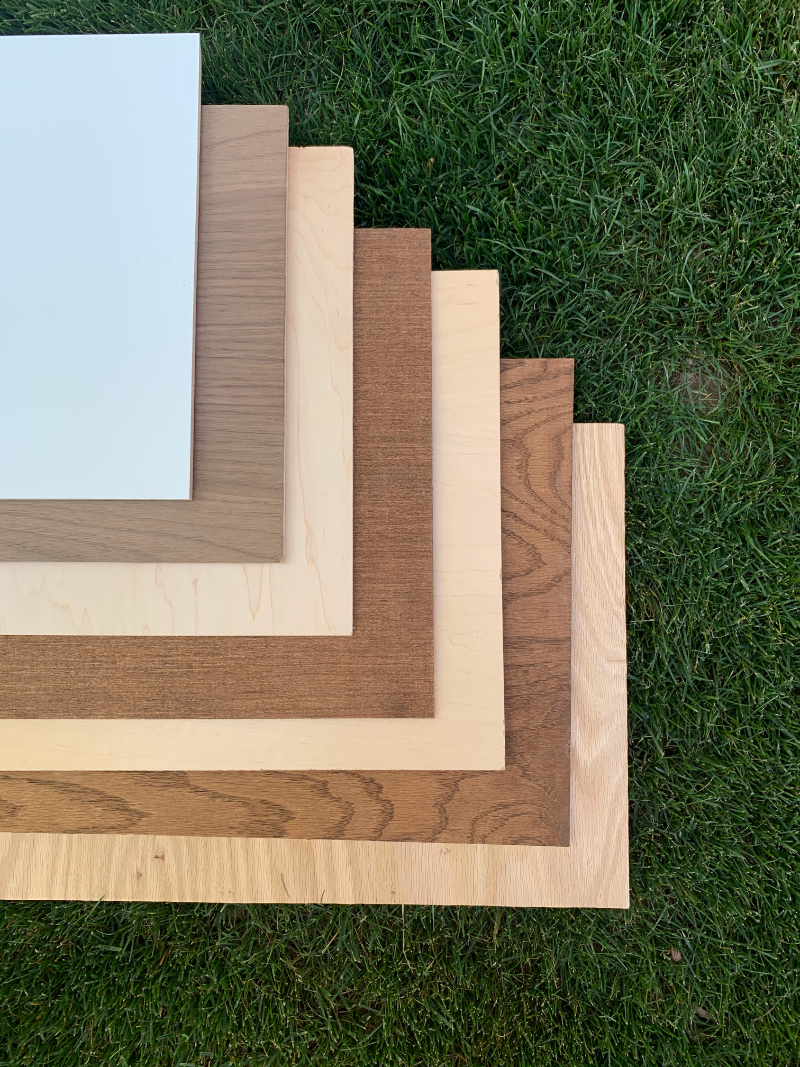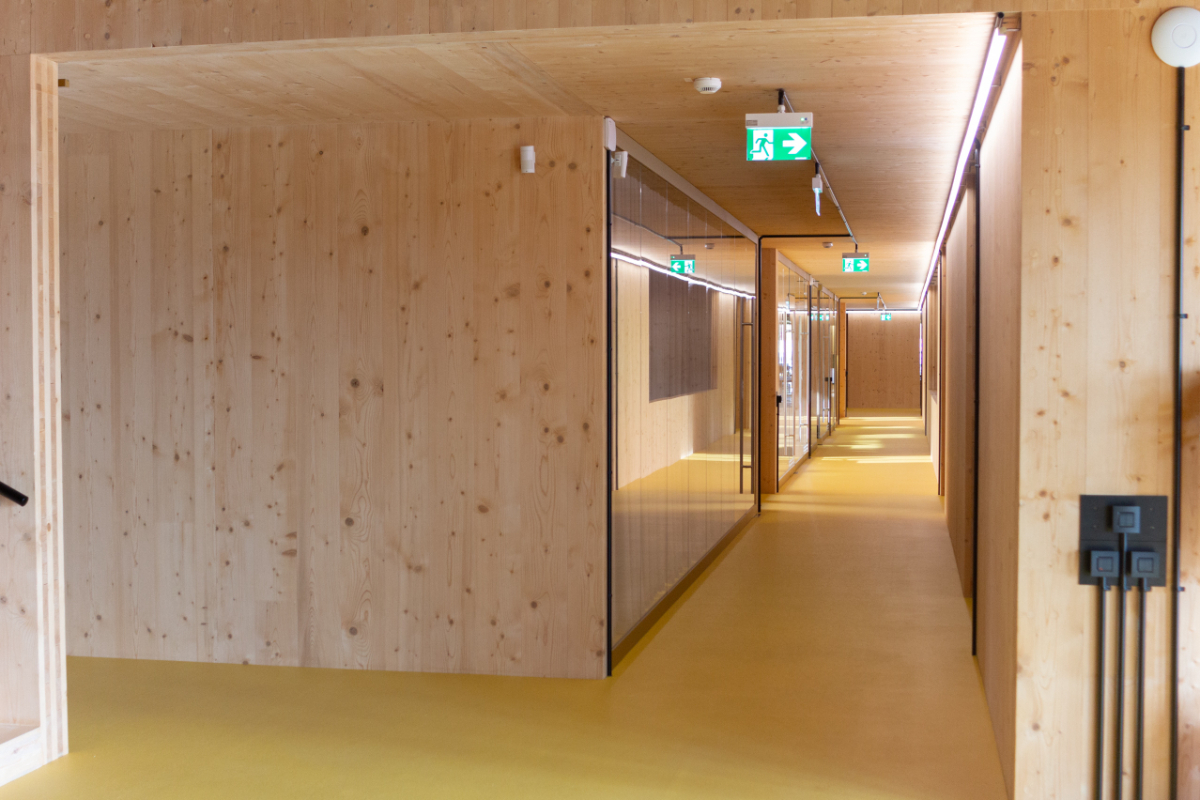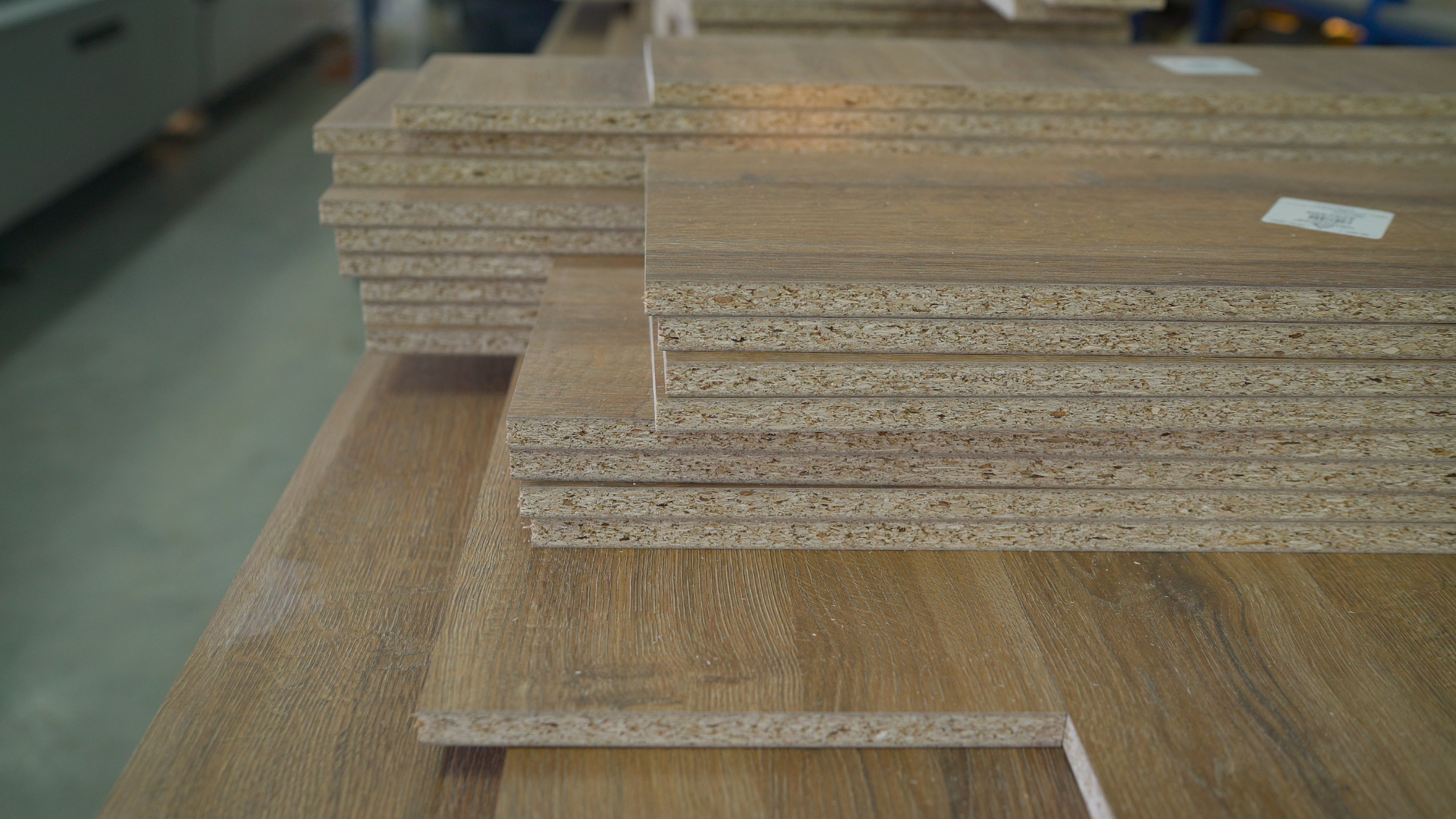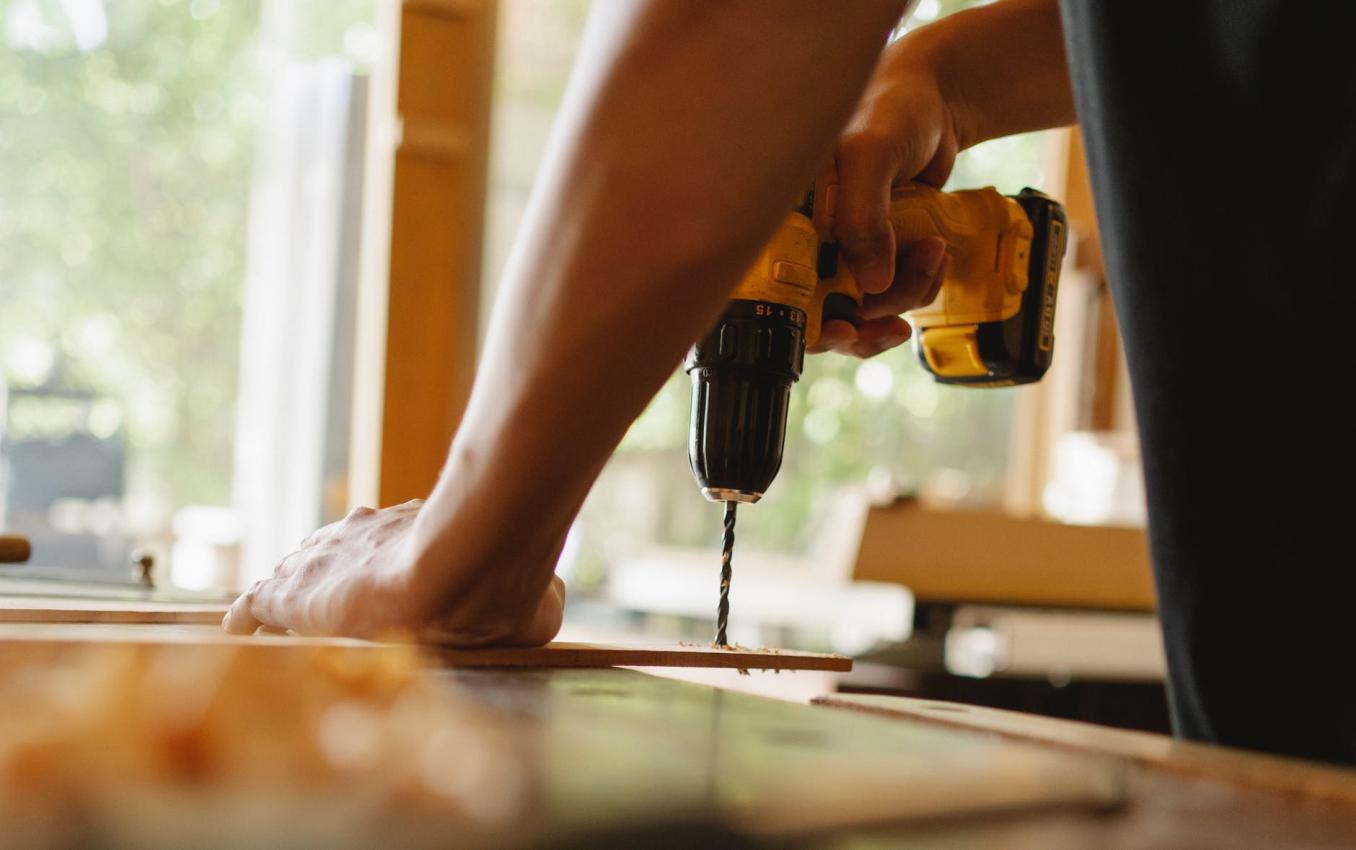Have you considered: What are the advantages of plywood timber? This article explores the benefits of plywood. Find out if plywood is the right timber for your project.
Theos Timber offer plywood timber made to measure cutting and delivery for Manchester, Liverpool, Stockport, Preston and the surrounding areas of Lancashire. Find out more about selecting the right timber for your requirements.
What are the benefits of Plywood?
Since its inception in the early 20th century, plywood has grown in the esteem of many builders and homeowners. While it was initially considered a cheaper substitute for solid wood, it is now a fully-fledged and very handy building material in its own right.
There are many advantages to using plywood when building or decorating a property, and here is our list of the most important benefits of using plywood.
Strength
It may surprise some to discover that plywood can offer incredible durability compared to solid wood. This is due to the way plywood sheets are created.
While the load-bearing strength of natural wood sources is best along the grain, this isn't a limitation for plywood.
The wood piles that make up the layers of plywood are pressure-bonded with strong adhesives and layered at different angles. This creates multiple grains that cross one another throughout the structure, giving plywood an evenly distributed weight-bearing capacity across the entire surface of the sheet.
Applying a good quality veneer or using strong phenolic adhesives can further increase the strength of plywood sheets, making them a great alternative building material when strength is a priority.

Good Aesthetics
Starting with the outside, there are few today who would argue against the aesthetic appeal of standard plywood sheets. The thin layers of outer ply are typically of a higher aesthetic quality than the layers in between them.
Therefore, plywood can look just as good as real solid wood when installed. This is especially true if you apply wood veneers, in which case you can create any wood effect you want with plywood materials.
Durability
Given that plywood has incredible uniform strength, it makes sense that it is also a very durable building material. Plywood can withstand in-service stress from any angle for a much longer period of time than natural solid wood.
Again, when strength is a priority in your building construction process, you may want to opt for plywood sheets rather than solid wood or other engineered wood products, given the plywood advantages and durability they provide.
Lightweight
Along with being stronger and more durable than heavier solid wood, plywood sheets are also much lighter, making them easier to work with. This benefit has been most appreciated in the furniture making industry.
While solid woods are more labour-intensive to work with, plywood offers any industry that requires wooden materials the opportunity to create long-lasting and stylish products, especially when crafting furniture.
Range Of Sizes
Plywood is available in a range of sizes since it is an engineered wood product. While a single piece of solid timber might not be the most economical choice for your product or project, the range of plywood sizes makes them a truly versatile building material.
Standard plywood sheet widths and lengths are usually around 1800mm x 1200mm, but you can find almost any size you need. This allows you to order the exact amount of material your project requires and determine the labour costs you'll incur.
Altogether, this will help your money to go further and reduce potential waste when using high-grade plywood. So, whether you are building furniture or undertaking a large-scale construction project, plywood sizes offer a fantastic way to save more timber and budget more effectively.

Larger Dimensions
The range of plywood sizes again gives it a leg up on solid wood in terms of square foot coverage. While it can be difficult to determine how much space a piece of solid wood will cover, you can determine exactly when it comes to plywood. Again, this will help you reduce waste materials and overall material costs for your project, which is particularly helpful for large construction projects.
Plywood sheets with specific dimensions will require less cutting, giving you the exact amount of material you need to cover the area you are working on. Knowing what your building materials measure when you order them will reduce the occurrence of annoying gaps and uneven ends during your project.
Easy Creating Curved Surfaces
Plywood can also cover any curved surface smoothly, which is usually not possible with solid wood alternatives. If you've ever tried to cover a curved surface with solid wood, you'll have noticed the uneven, rough edges left after the process.
However, thanks to the cross-grain construction of plywood sheets, they are far less likely to split and will leave flush edges. So long as you know what you are doing, you can bend, shape, cut, nail or screw plywood sheets to get them to conform and act as a plywood cover for your curved surface.
High impact resistance
Since plywood is constructed from wood, it inherits the ability to withstand short-term overloads, sometimes up to twice the value of the design load. This is perhaps most useful in areas with extreme weather, high winds or seismic activity.
It is also a handy feature when using plywood to create construction flooring or as a concrete formwork for foundations. The layers of the plywood laminate structure essentially distribute high loads over a large area on the opposite face of the sheet, dramatically reducing short-term tensile stress.
Increased stability
Another of the advantages of plywood is that you get all the benefits of the parent woods used to make it regarding their stability. Plywood can be made from softwoods, hardwoods or a mixture of both, depending on what you need your plywood to do.
For softwoods, the most common species used to make plywood include cedar, pine and spruce, while for hardwoods, oak, maple, teak, and ash are the most popular. The respective stability of these real woods is improved through the laminated structure of plywood sheets.
Fire-Resistant & Waterproof Treatment
Modern plywood sheets come with the added benefit of fire-resistant and waterproof treatments to add to their durability.
While you can find solid wood pieces treated in the same way, plywood sheets are often far cheaper, offering the same protection and resistance but at a fraction of the price. Marine plywood is a fantastic example of this.

Surface dimensional stability
The laminated nature of plywood also helps it to remain stable during extreme changes in moisture and temperature. When creating flooring or formwork construction, this moisture stability is extremely useful, helping the plywood maintain its shape and strength under changing conditions.
High strength-to-weight ratio
Whether you need to create strong flooring, formwork, shear walls or webbed beams, the strength-to-weight ratio of plywood makes it a fantastic material for these structural applications. It will maintain stiffness under significant pressure, making it a versatile and reliable building material.
Wooden Panel shear
Plywood can maintain lateral loads at a rate nearly double that of solid timber, again thanks to its cross-layered structure. It is, therefore, the ideal material for making portal frames, gussets, panel webs or bracing panels. Essentially, any element that requires lateral strengthening can be helped with plywood sheets.
Chemical resistance
Plywood has fantastic chemical resistance properties thanks to how the layers are treated. This makes it the perfect material for constructing cooling towers or chemical works, as the durability-to-price ratio is far better compared to solid wood.
Good Value For Money
Speaking of prices, plywood sheets will always be cheaper than pieces of solid wood, thanks to the lower production costs. As an engineered wood product, plywood is far more cost-effective than solid wood.
This is perhaps why plywood is increasingly popular with homeowners and builders since the savings don't stop at just the initial cost of the plywood.
The option to purchase the exact amount of material you need will reduce labour costs and wastage, saving you even more money. Its lightweight nature also makes transporting plywood in large quantities far cheaper than heavy lumps of solid timber.

Are you looking for plywood timber delivery in Manchester and the surrounding areas? We offer a range of timber cut to size for Manchester, Liverpool, Preston, Oldham, Stockport, Warrington and the surrounding areas.

